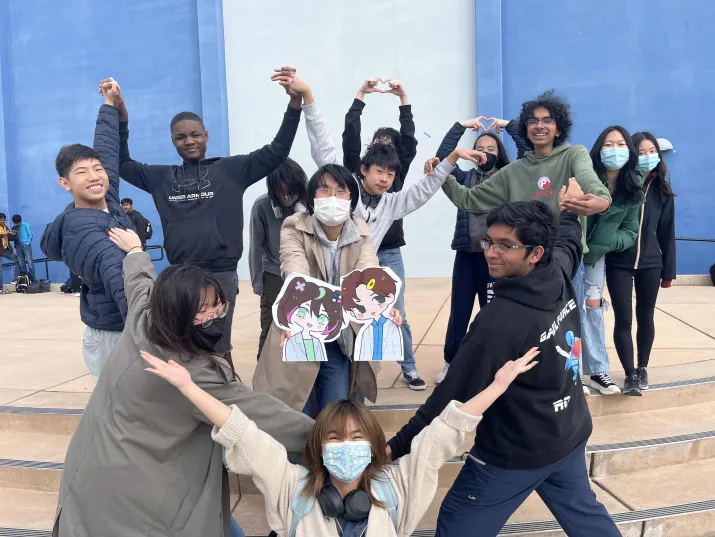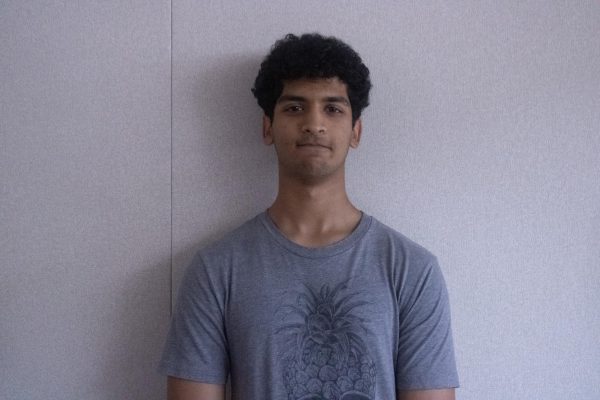In the CS workforce, representation has always been something of a “work-in-progress,” often because women’s, the LGBTQ+ community’s, and racial minorities’ abilities are doubted in their respective capacities in their careers. To illustrate this, the National Center for Science and Engineering Statistics reports that women earn just under a fifth of computer science degrees in the U.S. In addition, the percentage of CS degrees earned by African Americans has dropped in the past decade from 9.8% to 8.3%, while overrepresented populations have only increased their dominance in the field.
Fortunately, many students are working to address these inequities at the Girls Who Code and Game Development Clubs at DHS. We at the Dublin Shield had the opportunity to interview one such student, Marissa Li, who is a member of both clubs.
AJ: Can you tell us a bit about yourself and your experience in game development?
ML: Hi, I’m Marissa Li, and I’m a member of Dublin High’s Game Dev Club and Girls Who Code Club. I started coding towards the end of 8th grade, and my first programming language was actually Java… which was kind of a learning curve. I took CSE, POE, CSP, and CSA in high school, joined the Engineering Academy, did USACO/competitive programming, and competed in our annual entrepreneurship competition.
In junior year, I, along with a few friends, wanted to make a game development club at DHS; yet we were too late to find an advisor. Since we already advertised to the student body, we created Dublin CS Studio, a community Hack Club. I’ve mainly fulfilled a managerial role in both teams, and I really enjoy the design aspect, which brings me back to how I would create stories on WebNovel and ask my friends to illustrate in middle school.
This past summer, I got an internship and I started out doing market research for a game team. I moved around teams in the company those three months and stepped away from game development in the latter half. However, I’m going back to work in January to help with the marketing of another game. With a foot set in the industry, I now have an expanding network to other game developers, and I plan to invite guest speakers to Game Dev Club.
AJ: That’s really cool! What’s your perspective on the relationship between the tech workforce and women/LGBTQ+?
ML: I see companies accessing measures of inclusivity at the end of every year. Female and queer employees are forming organizations and communities within the companies as a way to empower each other and improve the environment in the company.
While there were initially many female programmers during the advent of modern computing power during the Cold War, they were displaced by returning male veterans. Labor laws did not adequately protect women, and employers were biased because they did not want to provide maternity leave or childcare. As a result, the tech field remained male-dominated.
Currently, there are different trends to the issues impacting different demographics. Having a representative workforce is the only way to truly understand the users. The employees alongside the users are the ones who are going to raise the flag on issues of harassment, the lack of inclusive pronouns, or the privacy of data relating to menstrual and reproductive health on a company platform.
AJ: One last question: do you have any advice for aspiring female and LGBTQ+ game developers, programmers, and computer engineers?
ML: Absolutely! Firstly, you shouldn’t compare yourself to others around you. Access to engineering classes isn’t standardized and your classmates all have varying levels of experience. Never stop hunting for resources or asking for help. You can join efforts to provide your community with learning resources and do outreach for your clubs.
Also, knowing how to code does open up many opportunities, and there are so many fields that use it. In Girls Who Code, you’ll learn about various careers and research fields, so I would say never stop being curious about all these areas, read or do projects in AI, biomedical engineering, robotics, graphics, NLP, computer architecture, etc. with various programming languages, game engines, libraries, and frameworks.
Hopefully, you’re facing much more encouragement in these fields than discouragement—yet challenges are inevitable. If it’s the conduct of another classmate, you should let a trusted adult know and regain confidence by talking about it with friends. I know many clubs such as GFR that have been working to make their environment more welcoming and are open to suggestions.
I find inspiration in the amazing work of Ada Lovelace, Katherine Johnson, Dorothy Vaughan, Mary Jackson, Grace Hopper, and more. The key is to believe that you can do something just as great.
AJ: Thank you for letting us interview you!
ML: Thanks for inviting me to be interviewed!
While most STEM fields, including CS, are still male-dominated, progress is being made. Indeed, with every graduating class, the percentage of female computer science and engineering majors increases by a few points. With people like Marissa and the 60+ other members of Girls Who Code and Game Development club leading the way, we can keep the forward momentum of positive change in previously stagnant fields. Though this change may be gradual, it’s reassuring to have the future of representation in such capable hands.




































